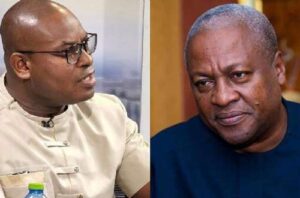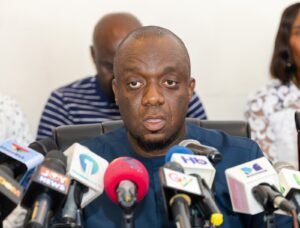
Kojo Oppong Nkrumah
The 2022 Budget Statement and Economic Policy is slated to be presented in Parliament on Wednesday, November 17, 2021.
Ahead of the presentation, the government is engaging stakeholders on how it should go about its revenue mobilization in order to close the gaping fiscal deficit in its books.
In an interview with a section of the media, the Minister of Information, Kojo Oppong Nkrumah, suggested that as demands for public services, such as the construction of roads and hospitals, increase, one of the ways government can bring about development is to mobilize more domestic revenue to enable it satisfy the legitimate needs of the people.
“Obviously, we would need to introduce some new broad-based taxes if we are to rake in the needed revenues to deliver what our people desire. New taxes may have to be imposed on items that exclude the poor and do not have high cascading effect so that it does not increase the difficulties that the Ghanaian is going through,” he said.
According to the Information Minister, about, eight to 12 percent of the country’s GDP, which ideally should come to government, is not coming in. “Yet, these economic activities are ongoing and are being recorded, forcing government to find ways to mobilize funds through taxes to fund the demands for roads, schools, hospitals,” he stated.
He said government’s target is to use the 2022 budget to consolidate the gains made so far in previous years, and “reboot the economy and set it back on track”.
Ghana was a victim of the deadly effects of the coronavirus pandemic, which has resulted in the country lagging behind most of its peers within the West African sub-region as far as the tax to GDP ratio is concerned.
While Ghana is doing below 15 percent, countries in the sub-region like Cote d’Ivoire and Nigeria are hovering around an average of 18 percent, raising questions on whether increasing taxes in the 2022 budget will help government shore up revenue inflows to fund developmental projects.








